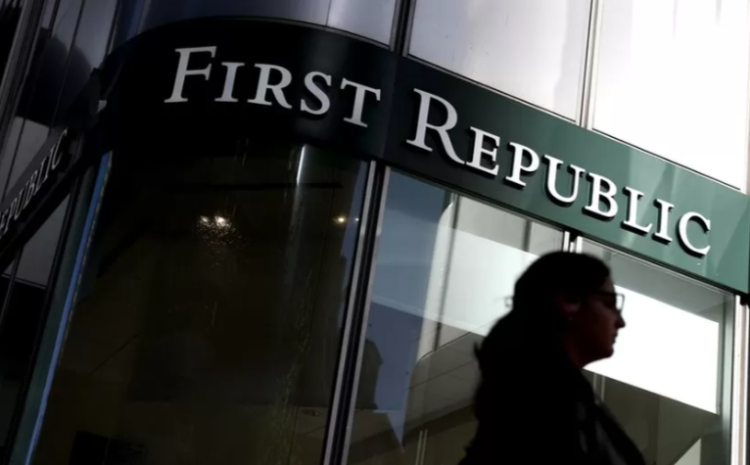
IMAGE SOURCE, GETTY IMAGES
JP Morgan is set to take over the troubled US bank First Republic in a deal brokered by regulators.
The Federal Deposit Insurance Corporation (FDIC) confirmed in a statement that First Republic had collapsed on Monday.
Investment banking giant JP Morgan will now take on “all of the deposits and substantially all of the assets of First Republic Bank”.
First Republic becomes the third major US bank to collapse in recent months.
The San Francisco-based lender’s shares fell by more than 75% last week after it admitted that customers had withdrawn $100bn (£79.6bn) of deposits in March.
It follows on from the collapse of Silicon Valley Bank (SVB) in March, which prompted fears of a wider banking crisis.
A deposit flight from lenders has forced the Federal Reserve, the US central bank, to step in with emergency measures to stabilise financial markets.
In March, a group of America’s biggest banks stepped forward to pump $30bn into First Republic in a bid to stabilise the business, but the efforts proved futile.
Founded in 1985, First Republic is a mid-sized US lender, similar to SVB.
For years, it has catered to wealthy clients – whose money was at risk before the takeover was announced after a weekend of negotiations.
In the US, FDIC insures customer deposits up to $250,000.
As part of the First Republic agreement, it will share losses on loans with the JP Morgan. The FDIC has estimated that its insurance fund would take a hit of about $13bn in the deal.
First Republic’s 84 offices across eight states will also reopen as branches of JPMorgan Chase.
In Europe, banking giant Credit Suisse was bought by rival UBS in March, in a deal orchestrated by Swiss authorities.
As central banks around the world raised interest rates aggressively to dampen the rate of price rises, otherwise known as inflation, some lenders have come under pressure.
Increased interest rates have hurt the values of the large portfolios of bonds bought by banks when rates were lower.
